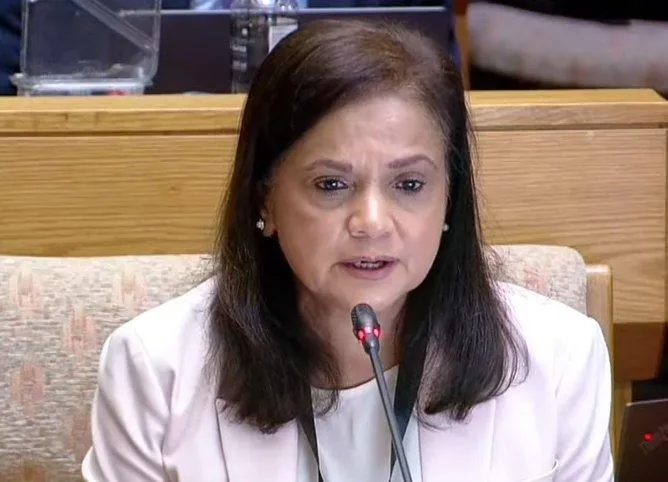Inside the Nkabinde Inquiry: Shamila Batohi's critical testimony on Andrew Chauke

NDPP Advocate Shamila Batohi commenced with her evidence before the Nkabinde Inquiry into the fitness of Advocate Andrew Chauke to hold office.
Image: X
National Director of Public Prosecutions (NDPP) head Shamila Batohi, the first witness to testify before the Nkabinde Inquiry regarding Director of Public Prosecutions Andrew Chauke’s fitness to hold office, said it was not easy for her to refer a senior colleague to an inquiry, but as the head of the NDPP, she has no choice.
Batohi was instrumental in Chauke being suspended by President Cyril Ramaphosa in July and for the president establishing the Nkabinde Inquiry, headed by retired Constitutional Court Justice Bess Nkabinde.
She took the stand on Wednesday and in her opening remarks said giving evidence before the inquiry was not something she relishes.
Batohi said she had known Chauke for a long time and they always had a cordial relationship.
“But as the National Director, I have a duty. I believe a full hearing will be in the interest of Advocate Chauke and the NPA to ensure that a fair decision is reached. The Constitution and the NPA Act require all of us to serve the people in South Africa in good faith. These are not just words. They mean a lot,” Batohi told the Inquiry.
In setting out what the NPA Act and code of conduct require of prosecutors in the country, Batohi stressed that it demands integrity, honesty, and always seeking the truth.
“It must be a person of utmost integrity,” she said in stressing that prosecutors are powerful officials within the justice system.
Batohi added that across the world, there is always the risk that outside influences can play a role in deciding whether to prosecute or not.
“We must withstand this, whether it be from politicians, the rich, the media, or civil society. We must not succumb to this.”
Batohi went on to say that decisions made by prosecutors can alter the course of a person’s life, as some can be falsely accused, while on the other hand victims might not obtain justice.
Every single prosecutor in the country must adhere to this principle and uphold the rule of law. Any perception that prosecutions are politically motivated to pursue a case without the necessary evidence or abandon a case for ulterior motives goes against the NPA Act, she told the inquiry.
Batohi said this is the context of the current inquiry into Chauke’s fitness to hold office. She pointed to the opening remarks this week by Advocate Tembeka Ngcukaitobi, on behalf of Chauke, where he said this case dangerously seeks to punish a prosecutor for simply doing his job.
“This can't be further from the truth,” she said.
In referring to the case of the institution of racketeering charges against Major-General Johan Booysen and members of the Cato Manor Unit, which Chauke drove, Batohi intimated that this was politically motivated.
It is claimed that while there was no evidence linking Booysen and the team to racketeering, Chauke persisted in seeing them prosecuted.
She also referred to the matter regarding the failure to continue with murder and other charges against Lieutenant-General Richard Mdluli. In this case, she said Chauke protected him from being prosecuted while there was strong evidence against Mdluli.
Batohi, however, did say that these events took place before she took office.
“I have no personal knowledge of any of these cases. Most of the facts happened before I was here.”
Batohi explained that she worked abroad for 10 years before she returned to South Africa as a prosecutor.
Batohi’s evidence on Wednesday was taken up by explaining the structures of the National Prosecuting Authority (NPA) and the roles of prosecutors.
She is expected to continue her evidence on Thursday, focusing on the specific allegations against Chauke.
zelda.venter@inl.co.za
Related Topics: